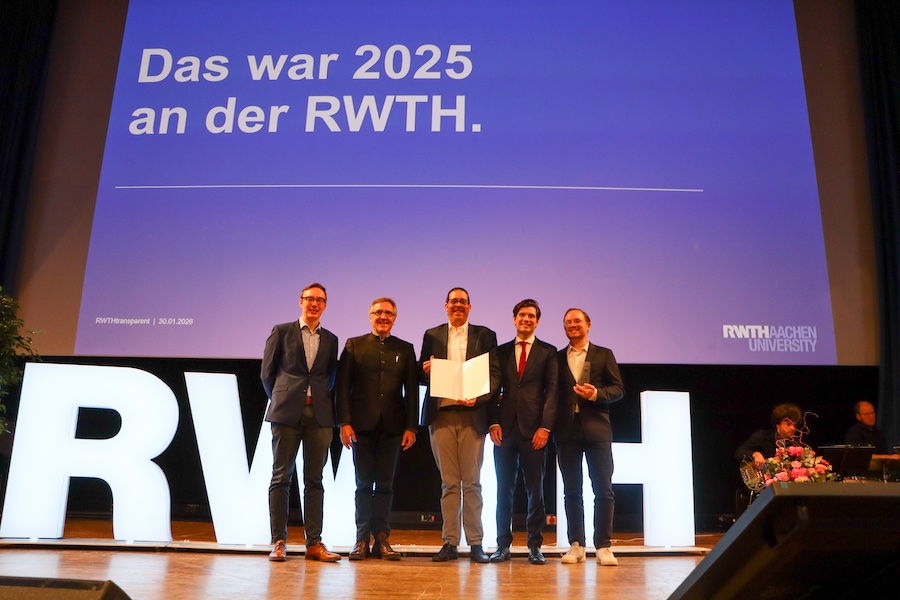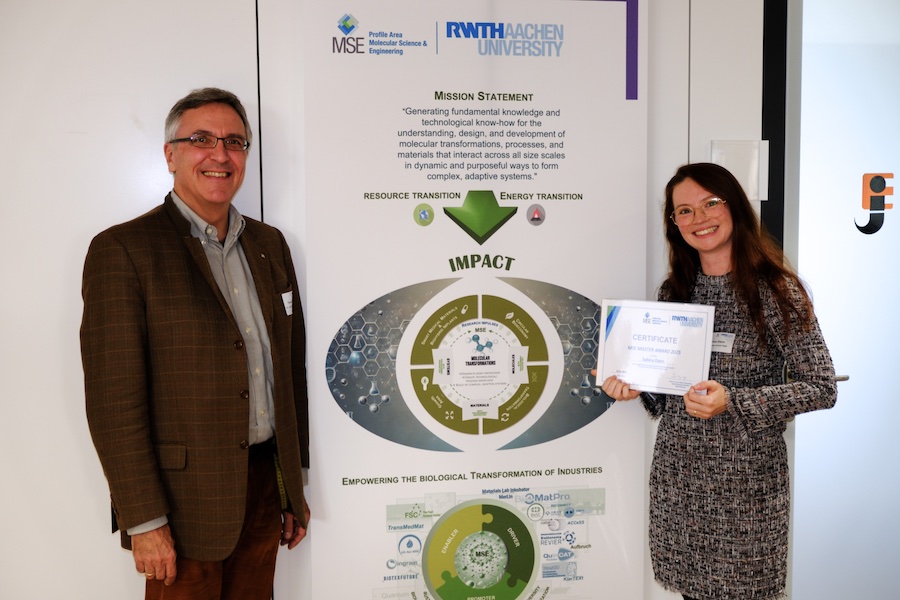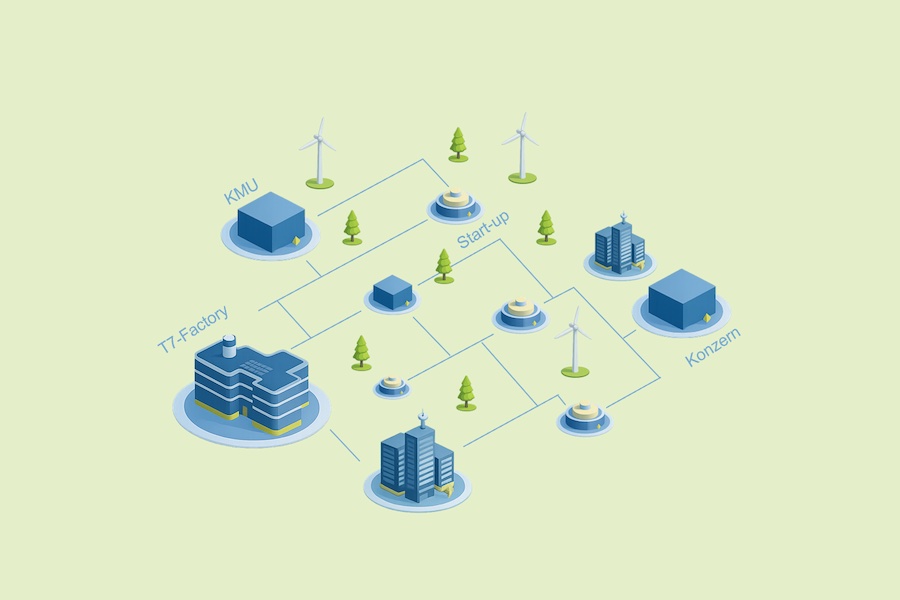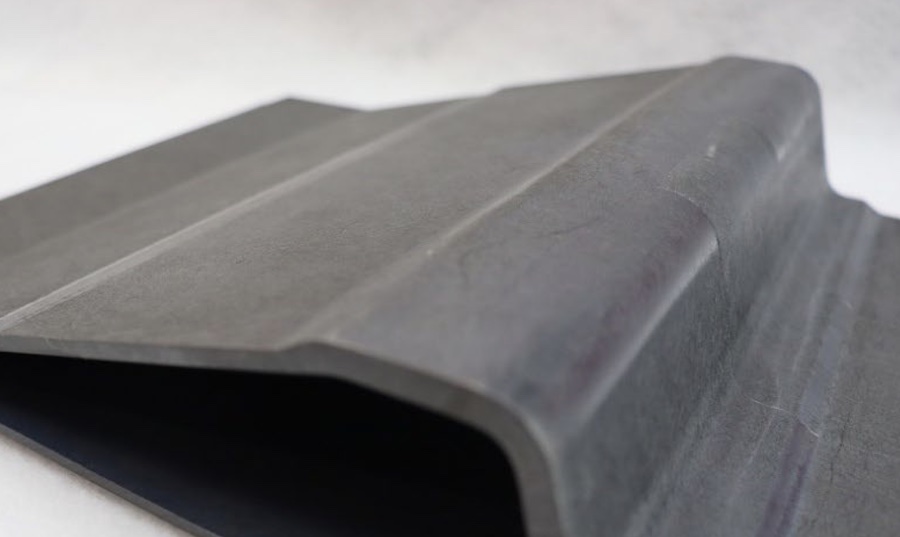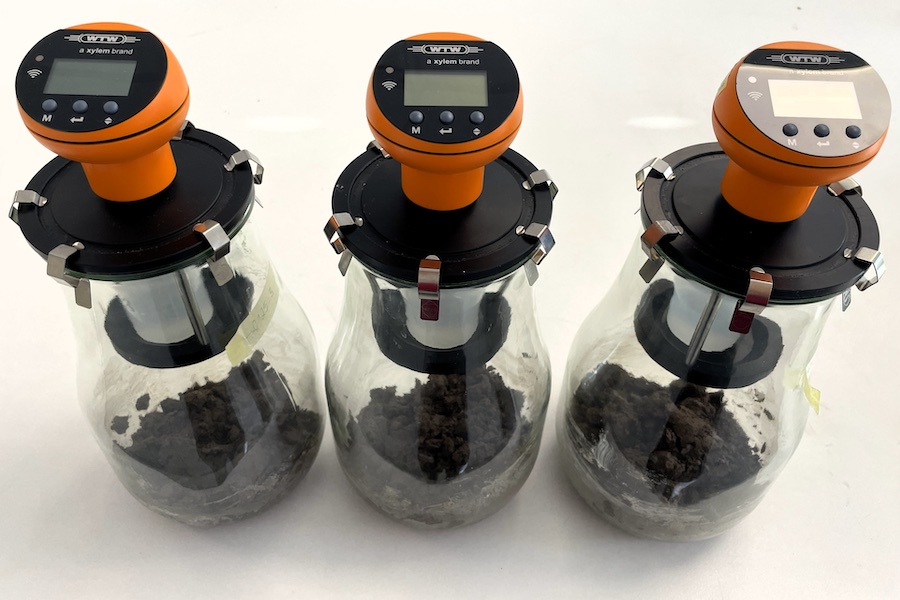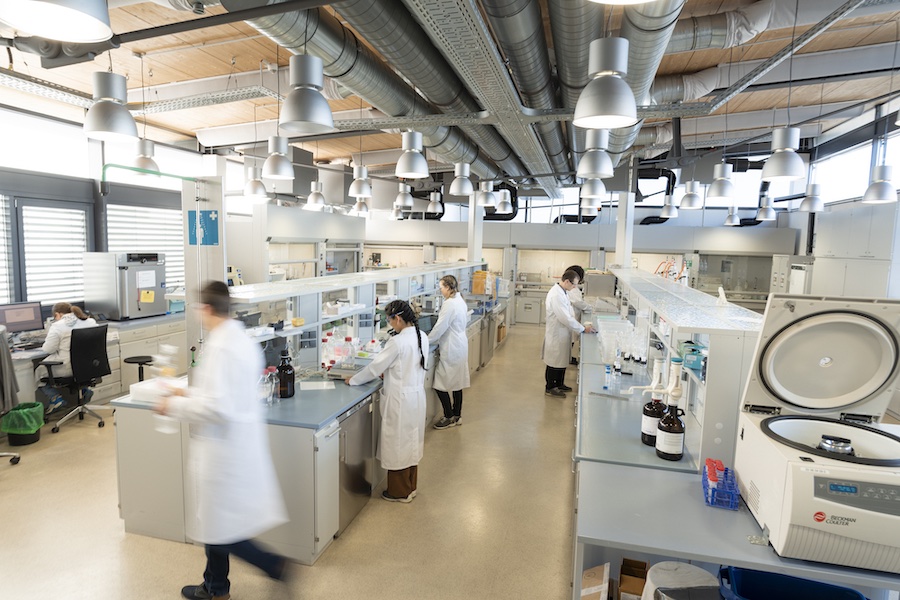#Research & Development
Sensor-based structural monitoring of automotive hydrogen
As highly stressed safety components, pressure vessels for the storage of gaseous fuel represent a core element of H2 drive systems for motor vehicles. In terms of lightweight construction, they are usually manufactured from fibre-plastic composites using the industrially established wet winding process. The stresses caused by operating pressures of up to 700 bar are essentially absorbed by endless carbon fibres in this design.
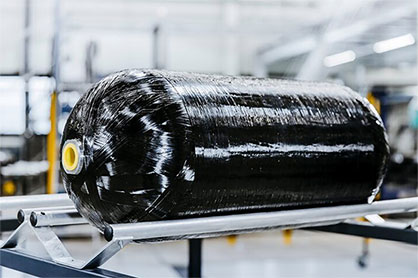
For safety reasons, recurring inspections of the gas system are prescribed every two years during the service life of the vehicles as part of the general inspection. Up to now, damage has been detected by means of a visual inspection for external damage to the tanks, caused for example by impact or shock loads.
The ambitious innovation project HyMon takes up the challenge of sensor-based on-board structure monitoring for 700 bar H2 pressure tanks. Specifically, the project is investigating acoustic emission and strain sensors with a focus on acoustic and strain-based measurement principles and the new sensor principle of a low-cost, printed resistance sensor with a diode matrix. A strategy for the integration of fibre-optic sensors in the manufacture of composite pressure vessels using the wet winding process and the derivation of the requirements for the manufacturing process are being developed. The overall sensor system is finally integrated into a test vehicle with an adapted tank control unit and validated by a combination of virtual crash and real test set-up.
"This continuous on-board structural monitoring of the pressure vessels ensures a high safety level of H2BZ vehicles, as possible damage can be detected even in the case of minor impacts, such as hitting a bollard," explains Christian Kaufhold, technical project manager at Hexagon.
Dr. Volker Strubel, joint coordinator of the project, adds that "this will enable an automated, electronic evaluation of the installed containers within a few minutes with the information stored in the vehicle in the future". This sensor-based evaluation on the basis of structural monitoring data reduces the repair costs in the case of over-conservative replacement of fully intact containers. Furthermore, the sensor technology can also be used for cost-effective and efficient monitoring of production quality.
The recently launched three-year research project HyMon is funded by the German Federal Ministry of Digital Affairs and Transport within the framework of the National Innovation Programme Hydrogen and Fuel Cell Technology Phase 2 (NIP II) with about 1.4 million €. The funding guideline is coordinated by NOW GmbH and implemented by the Project Management Jülich (PtJ). In the joint project, Hexagon, as a supplier of hydrogen pressure vessels, is working together with the material and simulation specialist MeFeX, FEV as an automotive engineering service provider, the Fraunhofer Institute for Structural Durability and System Reliability LBF, Cologne University of Applied Sciences and the ITA Institut für Textiltechnik of RWTH Aachen University.




